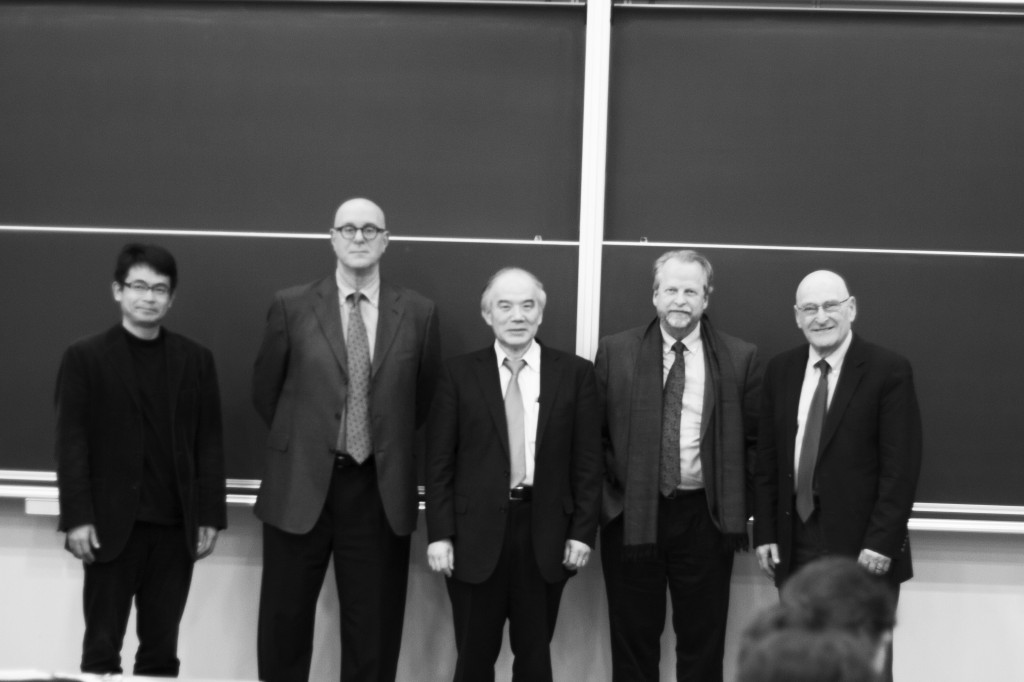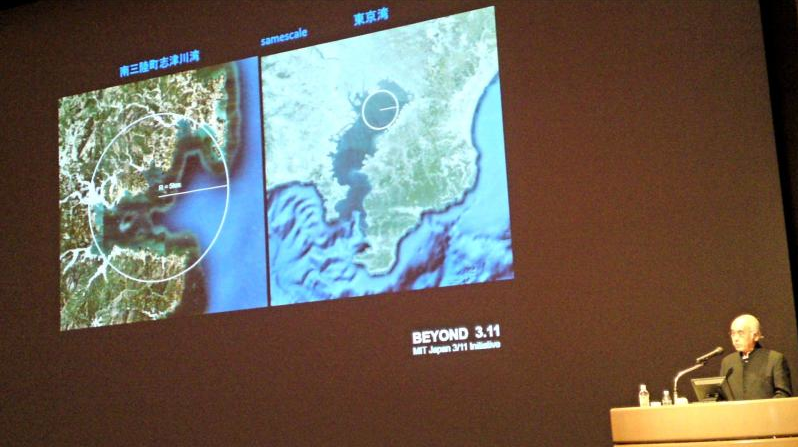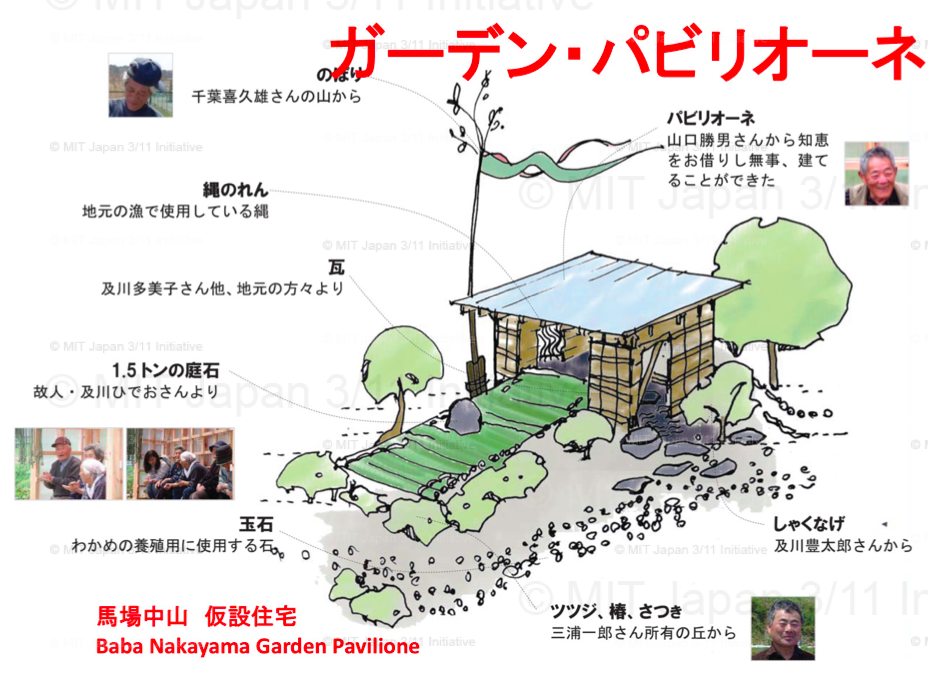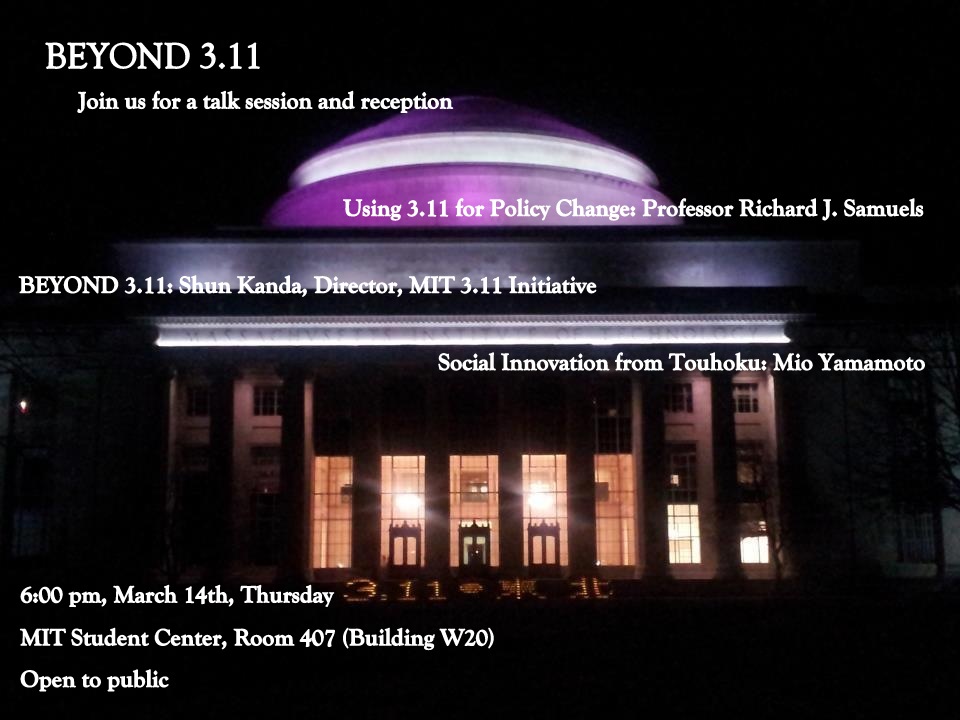
Please join MIT graduate and undergraduate students and the Japanese Society of Undergraduates (JSU) for a talk and reception at MIT to hear updates from Tohoku as we observe the 2nd anniversary of the 2010 earthquake and tsunami.
When: 6:00 pm on Thursday, March 14, 2013
Where: MIT Student Center Room 407 (Building W20)
Open to the general public
RSVP: Link (http://goo.gl/DeTUJ) or Facebook page
(Space is limited, so please RSVP)
Speakers:
- Richard J. Samuels, Ford International Professor of Political Science; Director of the Center for International Studies, MIT
- Shun Kanda, Senior Lecturer, Department of Architecture; Director, MIT Japan 3.11 Initiative
- Mio Yamamoto, Co-Founder and Director of World in Asia; Class of 2013, MIT Sloan School of Management
Topics:
“Using 3.11 for Policy Change” by Richard J. Samuels
Japanese political entrepreneurs used the catastrophe in Tohoku to nudge national policy in their preferred direction by constructing narratives and assigning blame for 3.11. Battles among competing perspectives on change and contested appeals to leadership, community, and risk have defined post-3.11 politics and public policy in Japan, particularly in the areas of national security, energy policy, and local governance.
“BEYOND 3.11″ by Shun Kanda
3 INSIGHTs_Toward Disaster-Resilient & Sustainable Futures for Minamisanriku; a report on the on-going work by the US and Japan-based MIT 3.11 Initiative team as we apprise our assistance continuing into the third year of recovery in Tohoku.
“Social Innovation from Tohoku” by Mio Yamamoto
How social entrepreneurs are addressing pressing social problems such as education, job creation, healthcare in Touhoku in collaboration with the private and public sectors.
For more information, contact: Mio Yamamoto, mioy AT mit DOT edu
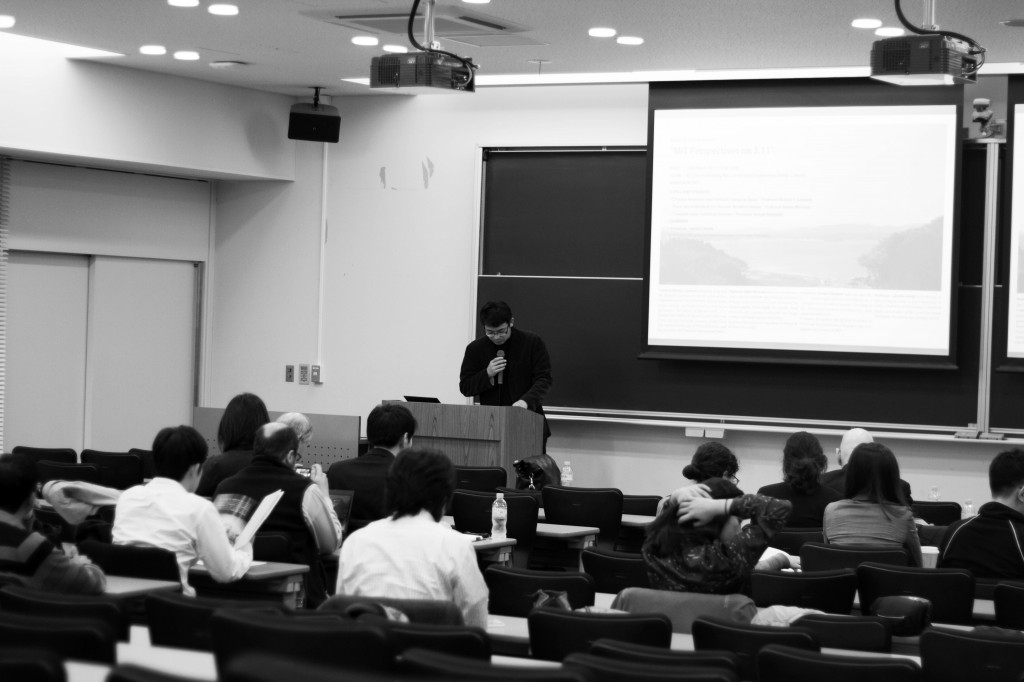 On March 25th, MIT Professors Joseph Sussman, James Wescoat, and Richard Samuels spoke at the “MIT Perspectives on 3.11″ Symposium hosted by the University of Tokyo. The event was chaired by Architecture Professor Toshio Otsuki and the discussant was Urban Engineering Professor Takashi Onishi, both of the University of Tokyo.
On March 25th, MIT Professors Joseph Sussman, James Wescoat, and Richard Samuels spoke at the “MIT Perspectives on 3.11″ Symposium hosted by the University of Tokyo. The event was chaired by Architecture Professor Toshio Otsuki and the discussant was Urban Engineering Professor Takashi Onishi, both of the University of Tokyo.
